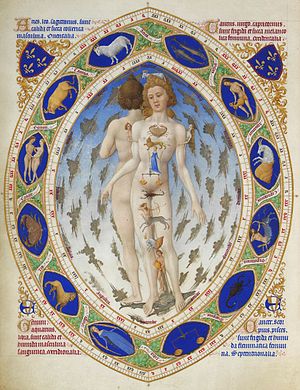
In the Middle Ages, the medicine of Western Europe was composed of a mixture of existing ideas from antiquity. In the Early Middle Ages, following the fall of the Western Roman Empire, standard medical knowledge was based chiefly upon surviving Greek and Roman texts, preserved in monasteries and elsewhere. Medieval medicine is widely misunderstood, thought of as a uniform attitude composed of placing hopes in the church and God to heal all sicknesses, while sickness itself exists as a product of destiny, sin, and astral influences as physical causes. But, especially in the second half of the medieval period (c. 1100–1500 AD), medieval medicine became a formal body of theoretical knowledge and was institutionalized in universities. Medieval medicine attributed illnesses, and disease, not to sinful behavior, but to natural causes, and sin was connected to illness only in a more general sense of the view that disease manifested in humanity as a result of its fallen state from God. Medieval medicine also recognized that illnesses spread from person to person, that certain lifestyles may cause ill health, and some people have a greater predisposition towards bad health than others.[1]
- ^ Black, Winston. The Middle Ages: Facts and Fictions. ABC-CLIO, 2018, pp. 169–190.